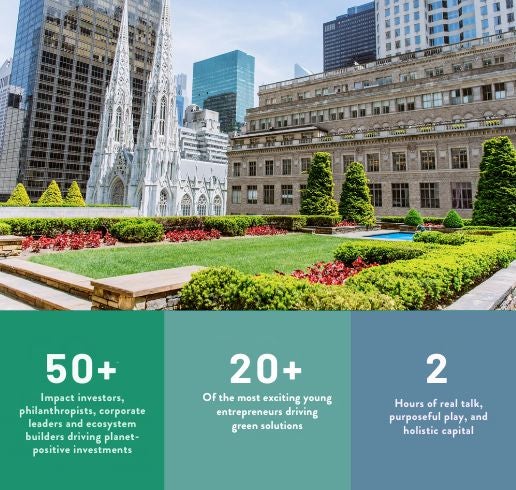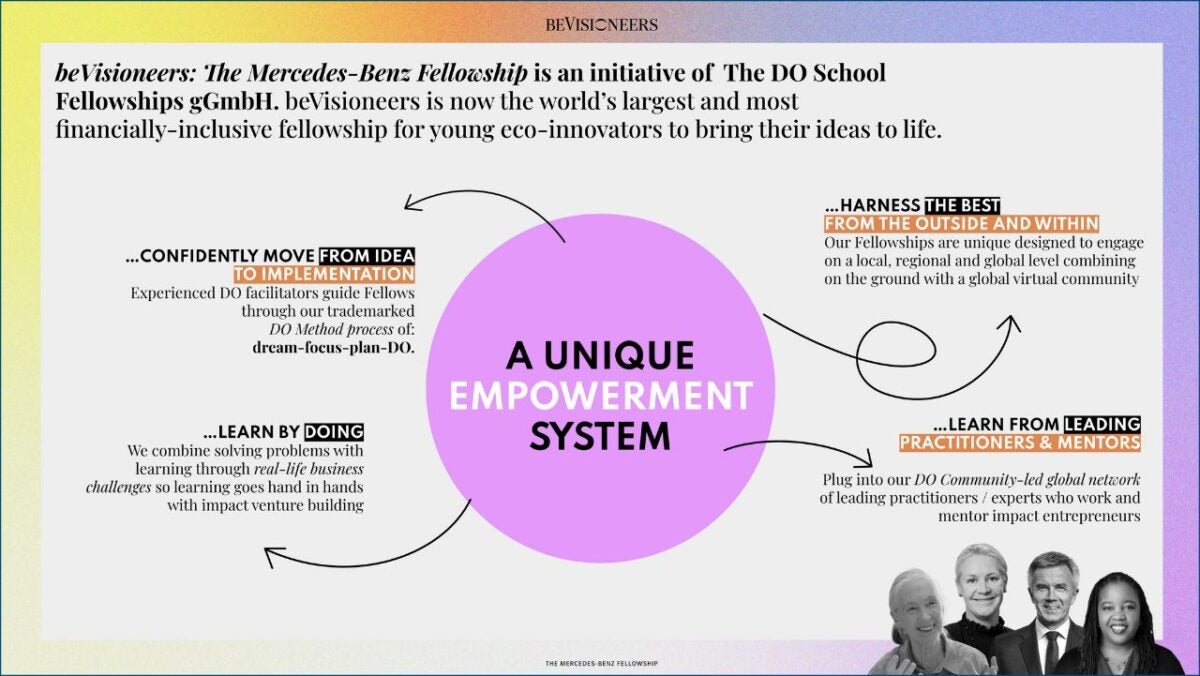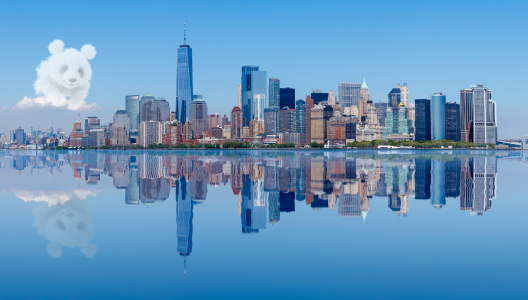
At Climate Week NYC, ANDE joined forces with beVisioneers: The Mercedes-Benz Fellowship and The DO to co-host Generation Innovation: Holistic Capital for a Planet-Positive Future. The event will convene over 50 investors, philanthropists, corporate leaders, and young eco-innovators in an interactive, gamified marketplace to explore how the right capital at the right stage can turn breakthrough ideas into climate solutions for local communities worldwide.
A Critical Juncture for Climate Innovation
We are at a turning point. Global investment in environmental innovation has slowed sharply since its 2021–2022 peak. Venture capital flows have contracted, concentrating mostly on later-stage deals and the power and transport sectors (PwC, State of Climate Tech 2024). Only about 15 percent of clean energy investment reaches emerging economies—home to three-quarters of the world’s population (IEA, World Energy Investment 2024/2025).
The trust gap between generations, institutions, and communities is widening, as international cooperation falters (UNCTAD, World Investment Report 2024; Edelman Trust Barometer 2024).
As highlighted in UNEP’s Emissions Gap Report 2024, we are running out of time. We’re currently tracking toward around 3.1 °C of warming, which is far above the critical 1.5 °C limit we need to aim for. To keep this goal within reach, we must cut emissions by 42 percent by 2030.
Momentum from Local Solutions
Despite the challenges, 2023 brought a wave of hope and progress! We saw the largest increase in renewable energy capacity ever, and over 14 million electric vehicles hit the roads worldwide. Cities are also stepping up, with more than 13,000 joining the Global Covenant of Mayors to boost sustainability efforts. Together, we’re making significant strides toward a cleaner, greener future—let’s keep this momentum going!
Emerging markets—often hardest hit by climate change—are also becoming centers of innovation. Clean energy investment outside China surpassed $300 billion for the first time in 2023, led by India and Brazil (IEA, 2024). In Africa and South and Southeast Asia, climate solutions are expected to be worth $500 billion by 2031 (Reuters). With 70 percent of Sub-Saharan Africa’s population under the age of 30 (UN OHRLLS), the talent and ambition to lead this transformation is already here.
Unlocking the Green Innovation Value Chain
But potential is not enough. Global climate finance reached $1.9 trillion in 2023, still far short of the $5–9 trillion needed annually to meet the Paris Agreement (Climate Policy Initiative). High costs of capital keep investment from flowing to where it is most needed. A blended finance approach—uniting grants, concessional capital, and commercial investment—offers a path forward.
Generation Innovation demonstrated what this alignment looks like in practice. Through a gamified marketplace, participants mapped out the “green innovation value chain”—from prototype to pilot to scale—and identified where philanthropists, corporates, accelerators, and investors could best intervene to support youth-led innovation.
 The Role of Collaborative Platforms
The Role of Collaborative Platforms
The DO School Fellowships have already shown what cross-sector collaboration can achieve: more than 10,000 innovators, corporates, and funders have tackled over 40 sustainability challenges, from circular fashion with H&M to regenerative food systems with Be the Earth. With beVisioneers: The Mercedes-Benz Fellowship, this approach is scaling further—upskilling 1,000 young innovators from over 55 countries and equipping them to launch sustainability ventures in their communities.
But no single actor can solve the challenge alone. Building a thriving ecosystem requires all players—corporates to mentor, philanthropists to seed early pilots, accelerators to refine business models, and investors to scale solutions.
Generation Innovation is a call to action. A reminder that while the challenges are immense, the energy and creativity of youth innovators, combined with the resources and experience of investors and institutions, can unlock the systemic change we urgently need.
The green economy represents a $2.5 trillion annual opportunity. With capital, trust, and collaboration flowing through every stage of the innovation chain, we can ensure that the most promising ideas from local communities become global solutions.
Now is the time to connect the right people, ideas, and resources. Together, we can build a planet-positive future.

Harnessing the Power of Data & Social Capital to Strengthen the MSME Ecosystem. Hosted by Somo and Youth Business International (YBI)
🗓 September 24, 2025
🕐 1:00 PM-2:00 PM
 Unlocking Finance
Unlocking Finance
Conservation efforts globally face a $598-824 billion annual financing gap, leaving essential environmental work unfunded. This event will highlight how WWF and its partners are innovating financial solutions at scale. Attendees will learn about the expanded Nature Finance and Investment team, enhancing programs like Project Finance for Permanence and the Nature-Based Solutions Origination Platform, while forming new strategic partnerships.
🗓 Tuesday, 23rd September 2025
🕥 10:30 – 11:30

Scaling Climate Solutions in 2025
Corporate adoption of climate technology relies on pilots to prove effectiveness, off-take agreements to open markets, and financing to make projects viable. However, today’s economy presents challenges like shifting investor interest, declining executive support, and fluctuating capital costs due to changing tariffs. Unreasonable, Enduring Planet and Earth Finance will gather experts from sectors such as nature-based solutions, water management, heavy industry, and electrification to share successful strategies for addressing these issues.
🗓 Monday, 22nd
🕐 1:00-6:00 pm
Interested in ecosystem transformation and not an ANDE member? Learn more about the benefits of membership. Subscribe to ANDE’s newsletter for updates on the agenda, speakers, and registration for the Global Annual Conference 2025.
